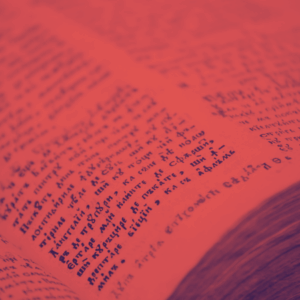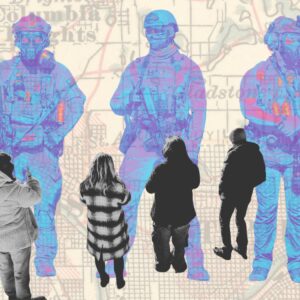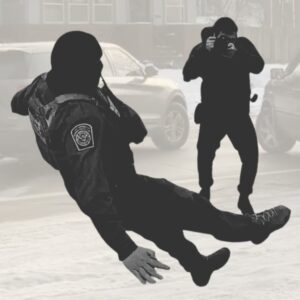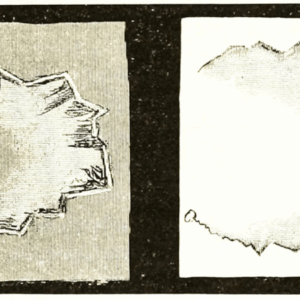Publishing as a business can be full of many surprises. The authors are always the experts on their subject area, and the publisher generally makes three decisions—on the quality of the writing, sometimes on the value of the information presented, and to some extent on the marketability, which really depends on whether the author wants a lot of money in advance.
When you’re publishing books about the government, it’s usually to give information, which is, of course, very important in a democracy. It becomes difficult if the government wants to stop the publication of a book—when that happens, the government always gives the reason that it is trying to protect information that would be harmful to the country if it were known. The question then becomes: Is it harmful to the country, or does the government just want to cover up a decision or action that it would rather not be public?
Frequently, the book is presented to the publisher before the government knows about it, and the publisher might also have a judgment on whether the information could hurt the country. In almost every case, however, the publisher’s inclination is to resist any kind of censorship.
Some times in American history have been tougher than others for free speech. When I became president of Random House, the memories of the McCarthy hearings of the early 1950s, when many people had their careers destroyed after being accused of having communist sympathies, were still fresh in mind. The early 1970s under the Nixon administration were not all that pleasant, either.
The biggest free speech case of the Nixon era was of course the Pentagon Papers, the forty-seven-volume, seven-thousand-page history of American involvement in Vietnam from 1945 through 1968. Compiled in the late 1960s by a thirty-six-member team of analysts on the orders of Secretary of Defense Robert McNamara, the report, which was never supposed to be released to the public, revealed that the U.S. government had been systematically lying to the American people about the Vietnam War. The papers showed that even while the Johnson administration insisted that the war would be easily won and the number of casualties limited, it knew that was far from the truth.
One of the analysts on the project, Daniel Ellsberg, leaked the report to the New York Times and the Washington Post, which both published excerpts from the report in June 1971.
The Nixon White House got injunctions to force the papers to stop publication. The two cases were joined into one—New York Times Co. v. United States. On June 30, 1971, the Supreme Court ruled 6–3 that the government had not met the “burden of proof” to show why publishing the Pentagon Papers would endanger national security and therefore could not exercise “prior restraint” on the newspapers’ right to publish.
That is the most well-known part of the Pentagon Papers story. But there was also a second act that involved book publishers.
Ellsberg had given a third copy of the report to Alaskan senator Mike Gravel (Ellsberg had offered the Papers to George McGovern, who declined because he thought it might hurt his presidential campaign). Gravel, who was the chair of the Senate Subcommittee on Buildings and Grounds, called an emergency meeting of his committee and began to read the Pentagon Papers out loud. After three hours, he broke down in tears and could not continue. He had achieved his purpose, though—the report was entered into the public record.
Gravel wanted to have the Pentagon Papers publicly available in a book. He convinced Beacon Press, a small house in Boston that was the publishing arm of the Unitarian Universalist Association, to publish the report.
It was a brave decision. Soon after Beacon announced its intention to publish the Pentagon Papers, Gobin Stair, its editor in chief, got a call at home from Nixon, who asked him not to do it. After the call, two FBI agents visited Beacon’s offices and asked Stair to return the Papers.
The harassment only hardened Stair’s resolve to publish, and Beacon released its four-volume version of the Pentagon Papers in October 1971. A few months later, the government led charges against the house, claiming that it had received and published stolen government property. The strategy was pretty apparent—even though the administration had lost in its case against the Times and the Post, it could still deliver a message by taking out Beacon Press. It was about making publishers and potential whistleblowers think twice in the future.
By the summer of 1972, Beacon had already spent $45,000 on legal expenses, a significant sum for a small imprint. That year, I was the chair of the Association of American Publishers. I thought that, as a group, we had to do something to show support for Beacon Press, so I called an emergency meeting at the Biltmore Hotel in New York that was attended by about two hundred publishers and editors.
I called the whole thing “a sad, shabby affair” and suggested a legal defense fund for Beacon of $100,000, to which Random House gave the first $2,500. At the time, I told Publishers Weekly that the industry had to send a message back to the government that no matter how miserable it wanted to make things for us, publishers were going to battle to defend our rights under the First Amendment. “It’s very hard to fight this kind of thing and run a business at the same time,” I said. “One dissipates so much of his creative energy just trying to hold on to freedoms one should be able to take for granted.”
For a publisher, these types of fights can be disastrous. Not only are they very time consuming, but the government, which has unlimited overhead and free legal advice, does not have the same constraints as a business. There’s a saying that the worst thing you can ever have to do is go to court against the U.S. government. Even if the government doesn’t win, it can make it so that your business is no longer viable.
In the end, Beacon got a break. The Nixon administration’s obsession with subterfuge and secrecy did it in. On June 17, 1972, five burglars were caught breaking into the Democratic National Headquarters in the Watergate Hotel. By 1973, it was becoming clear that the burglary had ties all the way up to the White House and the Justice Department. Nixon, of course, was forced to resign in August 1974 after it became apparent that he had been involved in the cover-up. The Beacon Press case never went to court.
At Random House, we were about to have our own run-ins with another part of the government where we, even in a democratic society, assumed there should have been some secrecy. The question was how much.
Our dealings with the Central Intelligence Agency began in 1964, when we published The Invisible Government, by the journalists David Wise and Thomas Ross. The book, which was edited by Bob Loomis, argues that since the CIA’s beginnings in 1947, the United States had built a massive espionage apparatus the scope of which Americans were completely unaware. (In the belief that to win the Cold War something had to be done to counteract the KGB, the CIA at its founding had been officially exempted from many of the oversight procedures to which other government agencies were subject.) The Invisible Government was the first book to critically examine the actions of the CIA. Among other things, Wise and Ross documented the agency’s role in military coups in Iran and Guatemala, the Bay of Pigs invasion of Cuba, and ongoing e orts in Vietnam and Laos.
When CIA director John McCone learned about the book, he approached Bennett and offered to buy the whole print run of ten thousand copies. Bennett said he would happily sell the government the first run.
“What will you do then?” McCone asked.
Bennett said, “Well, we’d be out of stock, so we’d have to reprint it.”
As you may have guessed, that was not McCone’s intention, and the deal fell through. After we published the book, I later learned, McCone assigned a CIA team to enlist sympathetic journalists to pan it.
By 1970, the CIA was nearly twenty-five years old and deeply involved in top secret operations around the world. Victor Marchetti, a CIA operative, was disturbed by what he saw around him. Marchetti had joined the CIA in 1955 after getting a degree in Russian studies from Penn State. He rose through the ranks to become executive assistant to the deputy director of intelligence, a position that gave him a broad overview of the CIA’s covert activities.
Marchetti quit the agency in 1969. Two years later, he had finished a novel, The Rope-Dancer, which portrays the spy agency as bureaucratic and ineffectual. To comply with the terms of the secrecy agreement he had signed in order to work at the CIA, Marchetti gave a copy of the manuscript to the organization for review before publication. The agency found nothing that compromised security and cleared it to be published, but it placed Marchetti under surveillance.
Grosset and Dunlap published the novel, which didn’t sell well. Marchetti then began to work on an article for Esquire magazine that was to reveal more about the CIA’s covert activities. Before it was published, Marchetti met David Obst, a literary agent with leftist political sympathies, who told Marchetti to forget the magazine article and turn it into a book. Knopf bought the proposal for the book, The CIA and the Cult of Intelligence, at auction for $40,000.
The book was to tell the story of what the CIA was actually up to around the world. That included its front businesses, such as the airlines and radio stations it ran; its role in tracking down Che Guevara in Bolivia; its secret base in Peru; and its part in the Gulf of Tonkin incident. Marchetti’s main point was that obsession with secrecy and meddling in the internal affairs of other countries had grown more important to the CIA than its original mission, which was supposed to be collecting and analyzing intelligence.
CIA director William Colby was extremely disturbed when he found out that Marchetti was writing the book. In April 1972, Marchetti received a court order, instigated by the CIA’s lawyers, to submit the book to the CIA for censorship prior to publication.
CIA employees, then and now, have to sign secrecy agreements before starting work at the agency. These include the stipulation that anything written for publication must be submitted to the agency for vetting before it is given to a publisher. In 1972, the legality of the agreements had not been tried in court. Marchetti, represented by the American Civil Liberties Union (ACLU), challenged the agreement by claiming that the CIA was infringing upon his First Amendment rights—basically arguing that you can’t sign away your freedom of speech.
The court disagreed. Marchetti would have to hand over the book to the CIA for censorship before Knopf could publish it. Dan Okrent, the book’s editor, was not even allowed to see it before the CIA was done with it. The court decision basically formalized the government’s right to enforce secrecy contracts with its employees.
That was round one. In the summer of 1973, Marchetti—who was working with co-author John Marks, a former State Department analyst—sent the 517-page manuscript to the CIA. It came back with 339 different passages—anywhere from a few words to several paragraphs—deleted. In total, about 20 percent of the book was cut.
So we had a manuscript that had been literally sliced up with scissors. The government was clearly exercising its power to censor, and the only judge of whether that power was being abused was the person who did the censoring. We decided to take the government to court for infringing upon our right to publish—never before in American history had the government censored a book prior to publication. We believed that even if there were secrets the government had to keep, there should be some oversight.
I called Floyd Abrams, a lawyer who had worked on the Pentagon Papers and has since become one of the most prominent First Amendment lawyers in the country. He estimated that taking the case to court would cost about $50,000.
Before we continued, I knew it would be wise to speak with RCA. When the company had purchased Random House several years earlier, David Sarno had stressed that we should make no compromises that we would not make if we were still an independent publisher. Nevertheless, I knew that one of RCA’s major clients, as a defense contractor, was the government, and its defense business brought in a lot more money than we did. So I called the RCA vice president who was responsible for overseeing Random House and a couple of executives over to talk about it. I told them that as a publisher, this is what I had to do to defend my business. I also invited Aryeh Neier, the head of the ACLU, who talked to them about freedom of the press and the importance of this case. The RCA executives were nervous, but to their credit, they did nothing to interfere.
We led the suit in October 1973. In the time before it went to court in February 1974, Marchetti and the lawyers met several times with the CIA to challenge the deletions. On several, Marchetti argued that the information was either already in the public record or he had gathered it after his employment at the CIA had ended. The idea was to show the CIA that we were going to fight over every word; even before the trial, the deletions were reduced from 339 to 168. To me, it showed how arbitrary the editing process was.
The case was heard in Alexandria, Virginia, by Federal Judge Albert Bryan Jr., the same judge who had earlier decided for the CIA’s right to censor the Marchetti book. The five highest-ranking CIA officials appeared to testify. We argued that the CIA could not simply censor information at will on the basis of national security—it had to concretely show that the information in question was actually classified, not just deemed so by the assertion of the censor.
Judge Bryan released his decision at the end of March 1974. Of the remaining 168 deletions, Bryan ruled that the CIA had failed to show proper cause for 141 of them—that left only 27 of the original 339 cuts by the CIA, less than 10 percent of what it thought was too sensitive for the public to know.
It was a tremendous victory for us. But because the CIA immediately led an appeal, we decided to go ahead and publish the book as it was, with the 168 deletions. However, so that the public would be aware of where the censorship had occurred, instead of bridging those spaces over, we left white space, so readers could see what was being discussed before and after and how much had been removed. We printed the sections that had been restored in bold ink, so people would know what the CIA had attempted to censor. We planned to fill in the rest after the appeal, when the book came out in paperback.
Unfortunately, it wasn’t over just yet. On appeal, Judge Clement Haynsworth, whom President Nixon had unsuccessfully nominated for the Supreme Court a few years earlier, threw out Bryan’s decision. Haynsworth’s opinion was that a judge couldn’t referee what was really secret and what was not. Besides that, Haynsworth found, Marchetti “effectively relinquished his First Amendment rights” when he agreed to the secrecy contract.
In the end, the book ended up with 168 deletions, and the CIA had established that its right to enforce the secrecy contract superseded a former agent’s First Amendment rights. On balance, we won a few victories, but the government won the war.
Thinking about it years later, I believe that Judge Haynsworth could not have been right on both counts. There has to be somebody in a democracy other than the party committing the act who can pass judgment on it. Otherwise, anything can be covered up forever. We still have the same problem today with terrorism cases, where a high amount of secrecy is necessary, but there is still no independent oversight to counteract the government’s inclination toward restricting information.
From SPEAKING FREELY. Used with permission of the New Press. Copyright © 2016 by Robert L. Bernstein.













